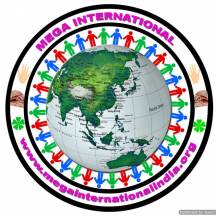Cause Area
Primary Sectors
Secondary Sectors
Financials
-
2022
Total IncomeRs.2,132,177Total ExpensesRs.2,256,030Non Program ExpensesRs.129,241Program ExpensesRs.2,126,789Tip: Click on any value above to exclude it. -
2023
Total IncomeRs.2,854,757Total ExpensesRs.2,870,221Non Program ExpensesRs.67,820Program ExpensesRs.2,802,401Tip: Click on any value above to exclude it.
Geographies Served
Programs
-
Small Farmer Support Programme
-
Disable Welfare Programme
-
Vocational Training
-
Total Sanitation Campaign
-
Welfare of Old Age People
-
Community Health
-
Child Labor Prevention
-
Awareness Generation on Relevant Socio-Economic Issues
Impact Metrics
-
Increased Productivity, Improved Income and Enhanced Food Security
Program Name
Small Farmer Support
Year-wise Metrics- 2021-22 150
- 2022-23 250
-
Inclusion and Empowerment Community Awareness
Program Name
Disable Welfare
Year-wise Metrics- 2022-23 150
-
Skill Development, Improved Employability and Expanded Opportunities
Program Name
Vocational Training
Year-wise Metrics- 2021-22 200
- 2022-23 200
-
Improved Community Health, Reduced Waterborne Diseases and Enhanced Dignity
Program Name
Total Sanitation Campaign
Year-wise Metrics- 2021-22 220
- 2022-23 250
-
Improved Quality of Life and Strengthened Community Bonds
Program Name
Welfare of Old Age
Year-wise Metrics- 2021-22 25
- 2022-23 25
-
Disease Incidence Rate Reduction, Healthcare Access Improvement Metrics, Overall Community Health Index.
Program Name
Community Health
Year-wise Metrics- 2021-22 300
- 2022-23 250
-
Number of Children Enrolled in Education Programs, Decrease in Child Labor Incidents, Community Empowerment Indices.
Program Name
Child Labor Prevention
Year-wise Metrics- 2021-22 250
- 2022-23 350
-
Increased Knowledge Levels on Socio-Economic Issues, Community Advocacy Engagement, Policy Influence Metrics
Program Name
Awareness Generation
Year-wise Metrics- 2021-22 260
- 2022-23 250
Registration Details
-
PAN Card
AAATM8843R
-
Registration Number
531
-
CSR Form 1
CSR00020951
-
80G
AAATM8843RF20210
-
12A
AAATM8843RE20212
-
FCRA
031170393
About
-
Headquarters
Patna, Bihar
-
Since
2002
Impact
Small Farmer Support Programme: Increased Agricultural Productivity: Farmers may experience higher crop yields and improved farming practices, leading to increased income and food security. Empowerment: Small farmers may feel empowered through knowledge and resources, contributing to sustainable agricultural practices. Disable Welfare Programme: Inclusion and Empowerment: Individuals with disabilities may experience increased inclusion in society, with improved access to education, employment, and community activities. Attitudinal Change: Community attitudes toward people with disabilities may shift, reducing stigma and promoting a more inclusive environment. Vocational Training and Running of ITI: Skill Development: Participants in vocational training programs may acquire valuable skills, enhancing their employability. Employment Opportunities: Graduates of ITI programs may find increased opportunities for gainful employment in their chosen fields. Total Sanitation Campaign: Improved Health: Enhanced sanitation practices contribute to improved community health, reducing the prevalence of waterborne diseases. Dignity and Well-being: Access to proper sanitation facilities enhances the dignity and well-being of community members. Welfare of Old Age People: Quality of Life: Older individuals may experience an improved quality of life through access to healthcare, social activities, and support services. Community Cohesion: Programs for the elderly contribute to stronger community bonds and intergenerational relationships. Community Health: Disease Prevention: Health programs may lead to a decrease in the prevalence of diseases through preventive measures and increased health awareness. Improved Healthcare Access: Communities may benefit from improved access to healthcare services and timely medical interventions. Child Labor Prevention: Education Opportunities: Initiatives to prevent child labor can create opportunities for children to access education and break the cycle of poverty. Community Empowerment: Awareness programs empower communities to address the root causes of child labor and advocate for children's rights. Awareness Generation on Relevant Socio-Economic Issues: Informed Decision-Making: Communities may make more informed decisions on socio-economic issues, leading to positive changes in behavior and practices. Advocacy and Policy Influence: Increased awareness can contribute to community advocacy and influence policy changes at local and regional levels. The impact of these programs is interconnected and often extends beyond the immediate beneficiaries, creating positive ripple effects throughout the community. Monitoring and evaluating the outcomes of these programs are essential to ensure continuous improvement and effectiveness.
Vision and Mission
Mega International's vision is to empower marginalized people and work towards eliminating social inequalities. Its mission is to implement programs that reduce poverty, provide education and skills training, improve health and sanitation, and advocate for the rights of disadvantaged groups.
Political & Religious Declarations
-
Political Affiliation
-
Religious Affiliation
Location
-
Headquarters
saraswati lane, lohanipur, po-kadamkuan, dist-patna, Patna, Bihar, India, 800003
Directions, Patna, Bihar -
Offices in Cities
Other Details
-
Type
Non-profit
-
Sub Type
Society
Website
Technology Adoption
-
SOC 2 Compliant
No
-
Financial Management
-
Beneficiary Management



